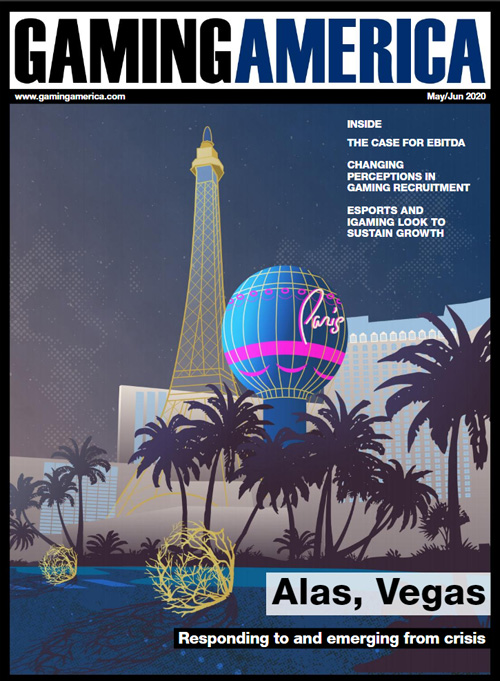
With the ever converging world, made smaller by the ability to travel and the influence of technology, it’s fair to assume that elements of every business including the betting and gaming sector will converge over time. One factor that has had a gigantic effect
on the UK and European market has been the impact of Anti Money Laundering (AML) regulations, and the knock-on effect they’ve had – it’s been transformational.
Restrictions on movement of cash has long been vaguely on the radar of the authorities, but if the US gambling industry is going to end up following on from the European experience, there’s a major storm coming. The Americas are no stranger to AML issues and fines, with HSBC being levied phenomenal penalties for essentially turning a totally blind eye to gigantic cash deposits from drug cartels, resulting in a $1.9 billion fine in 2012 to avoid prosecution for allowing over $880 million in proceeds from illegal drugs. At the heart of the issue for the gambling industry, however, is perhaps not so much pure money laundering in the literal sense, but the spending of proceeds of crime. That distinction turns the focus from gigantic players to much smaller fish. So how did Europe get to the position they’re in now?
Leaving aside the details of which piece of legislation pertains (European money laundering directives and countless other bits of law) and how the politics worked, it feels like the primary driver of the very strict interpretation in the UK has been negative press surrounding that Proceeds of Crime issue. One could argue that true money laundering is pretty tricky in a gambling environment, either offline or online, without either a very large and complex cover up operation, or a total disregard for the existing laws from operators and indeed regulators. The option to obtain “clean” money from an offline operation is tougher than many think, with “suspicious” transactions such as large buy-ins and cashout with minimum play having been under scrutiny for decades. On the other hand online play is of course tracked to the penny, meaning there’s less room for huge movements of money from illegitimate sources to apparent clean winnings.
However, it doesn’t take too many headlines screaming “man steals $300K from employer to feed gambling habit” to get the authorities very interested, and with gambling on sports opening up in many states in the US, these headlines will become more prevalent. It seems likely that online casino wagering won’t be too far behind too, arguably a more dangerous form of gambling that will lead to more addiction problems and more high profile cases.
The solution used in the UK and Europe has been something almost unimaginable 10 years ago – the need to verify the source of wealth or funds for all significant players. It might seem inconceivable to US operators, but in the UK for example, players worth as little as a few thousand pounds a year are being asked the most intrusive questions about how they can fund that play – and penalties for failing to record this information are getting tougher by the month. Twenty to 30 years ago, there may have been a tacit acceptance that many of the bigger players in UK offline casinos, for example, were likely to be operating business that were tax-averse at best, and downright illegal at worst, but with minimal regulatory oversight , blind eyes were turned.
These days, however, all that is ancient history. No casino manager in the country isn’t familiar with the need to verify sources of income and wealth, and you only have to witness a couple of conversations between casino managers and long treasured customers to understand the seriousness of this task. I’ve seen an older lady asked, apologetically and somewhat unwillingly, to produce documentary evidence of the inheritance from her late husband to justify her £10K a year slot play. The problem for the top line of the business isn’t just getting the information from players, so as to exclude people whose incomes aren’t verifiable, however.
For every player who produces this information, you can imagine there are plenty who won’t. In some cases they’re criminals. However, there are plenty of other casualties, from people who just don’t want to produce the information on the basis that it’s intrusive, to a significant problem in the UK, players who are concerned that their income may become a little too transparent to the tax authorities.
The regulators in Europe have, as one might expect, had zero sympathy for operators whose revenues have been destroyed by these measures, and while the casino industry in the UK hasn’t seen too many closures just yet, we believe a good number of casinos won’t re-open after the current virus outbreak permits a back to normal situation.
How does all this relate to the situation in the USA? It’s beyond the scope of this piece to foresee the reaction of the legislators in every state, but inevitably as cases mount up of people resorting to illegal activities to fund their problem gambling, the issue will gain traction. The tipping point may well be some high profile individual who is able to gain access to a very large fund of illegally obtained money and spend it gambling online, at which point the legislatures must step back and say “shouldn’t we be asking the operators to run proper checks?” That’s how it starts, and when you combine the societal damage caused by genuine money laundering, spending proceeds of crime and then pure problem gambling, checks on where players’ money comes from look like the obvious solution. Just bear in mind it might have a savage effect on revenues if it’s anything like the UK and European set of regulations.

